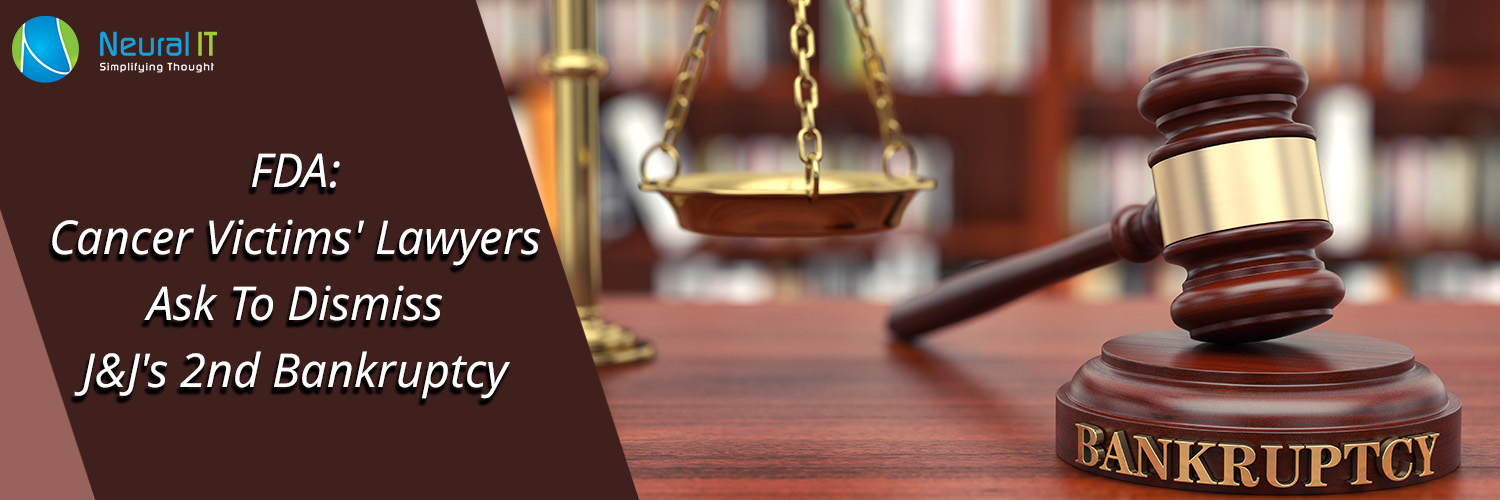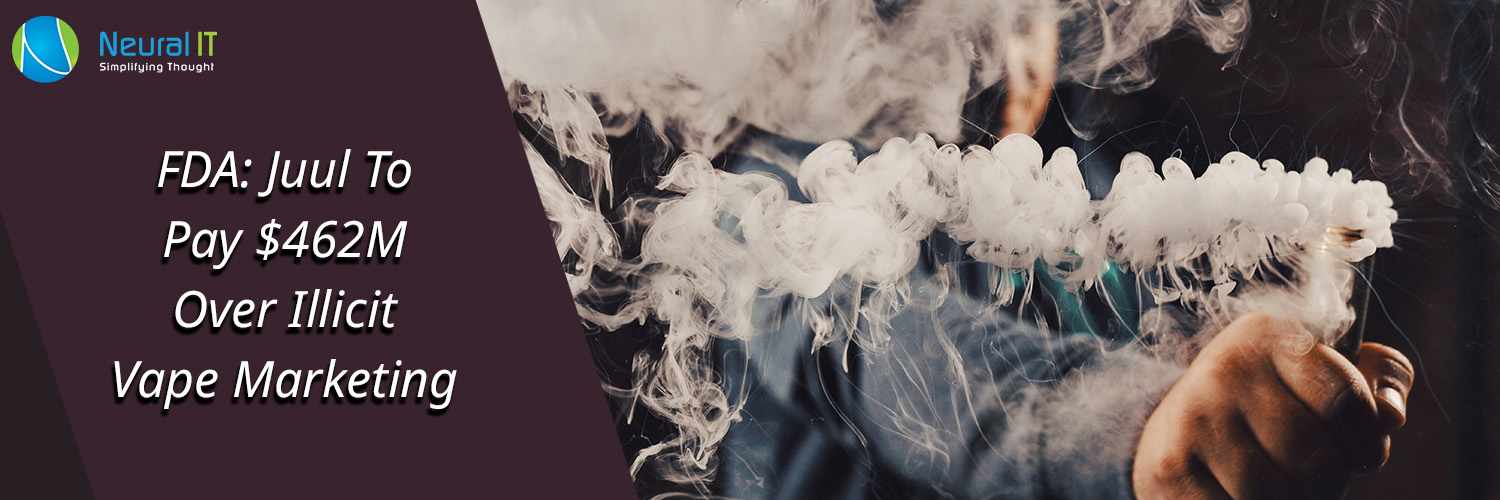Cancer Victims' Lawyers Ask To Dismiss J&J's 2nd Bankruptcy

Lawyers for cancer patients stated in a court filing that Johnson & Johnson's second effort to settle talc cases through bankruptcy should be rejected as an unprecedented scam intended to deny plaintiffs proper recompense.
The lawyers claim J&J disregarded a January appeals court decision rejecting its initial attempt to settle the lawsuit, pointing out that a J&J subsidiary re-filed for Chapter 11 bankruptcy just two hours after the first bankruptcy was rejected by the court. The transaction was denounced by the attorneys as the biggest intentional false transfer in American history. In contrast to its first offer of $2 billion, Johnson & Johnson is now proposing to resolve all claims for $8.9 billion.
In a reiteration of past criticisms of the company's initial attempt to settle the litigation, the attorneys criticized its most recent maneuver as an illegal exploitation of the Chapter 11 system.
J&J carried through a contentious legal maneuver called a Texas two-step in October 2021. Its consumer business was split in half, and tens of thousands of talc claims were subsequently transferred to a newly formed company; this subsidiary then swiftly filed for Chapter 11 protection. The objective is to stop the onslaught of litigation and compel plaintiffs to settle everything in bankruptcy court.
The plaintiffs claim that J&J's talc-based Baby Powder and related cosmetic items caused mesothelioma and ovarian cancer. The corporation insists that the talc in its products is secure.
On the eve of a bankruptcy hearing, which marks the beginning of J&J's attempt to resurrect the settlement effort following the appeals court's denial, the plaintiffs' attorneys filed their brief. The Philadelphia-based 3rd U.S. Circuit Court of Appeals rejected the two-step strategy on the grounds that J&J's subsidiary LTL Management had no legal basis for filing for bankruptcy because it was not in financial difficulty. The commitment made by J&J to pay the firms an unlimited sum of money to resolve cases was mentioned by the court.
J&J revised its contracts in response and decided not to offer the subsidiary the same sort of guaranteed money it had previously. However, the new agreements amount to a fraudulent transfer since they keep tens of billions of dollars out of the hands of the plaintiffs, according to the attorneys for the cancer patients.
The document demonstrates the growing hostility from several plaintiffs' attorneys to the revised settlement proposal. The opposition will make it more difficult for J&J to triumph against anticipated challenges that are almost certain to use the same arguments the appeals court used to dismiss J&J's first subsidiary bankruptcy.
According to J&J, bankruptcy is the only legal venue that can end all ongoing and future talc claims. The business claims bankruptcy serves the interests of all parties by disbursing settlement funds more effectively and fairly than in trial courts, where some plaintiffs receive significant damages while others receive nothing.
According to Johnson & Johnson, its subsidiary's new finance arrangements allay the appeals court's worries while still making it possible to pay claims. Attorneys for cancer patients opposed to the deal said in their brief that the new funding arrangement presented a new legal issue: J&J, they claimed, had defrauded and shifted $50 billion of assets away from LTL Management in order to circumvent the appeals court's earlier decision.
The attorneys disputed the J&J subsidiary's justification that the financial reorganization didn't hurt talc claimants because the new agreements included funds to make up for it. If so, they contended, LTL Management still lacked financial difficulty at the time of filing for bankruptcy, which was the issue that led to the appeals court's denial.
In their court brief, the plaintiffs also contest J&J's assertion that its proposed settlement has broad support. They claimed that 40,000 claimants represented by more than 100 legal firms reject the agreement. By entering into partnerships with legal services providers who "have never filed a talc-related lawsuit against J&J," according to the attorneys for the opposing cancer patients, the business created the illusion of support.
The degree of support will be significant since a court won't sanction LTL Management's bankruptcy deal until it has approval from 75% of talc plaintiffs. This criterion, which is greater than in most conventional court restructurings, is necessary in bankruptcy cases involving asbestos.
In several claims, plaintiffs claimed that J&J's talc included asbestos, which the firm disputes. Regardless of how J&J does in its most recent bankruptcy strategy, the business has already been successful in delaying a financial and legal reckoning for a time.
According to plaintiffs' attorneys, it was the Texas two-step's main purpose, which they contended in a Monday filing. They said that the newly formed J&J subsidiary and other two-stepping firms have no activities, no employees, and no other commercial purpose than to protect their parent company from responsibility. The petition claimed that the entities were created "to stay in bankruptcy for years and years." "Their only business is causing delay."
Juul To Pay $462M Over Illicit Vape Marketing

Juul Labs Inc, the creator of e-cigarettes, has agreed to pay $462 million to resolve charges by six states, including New York and California, that it illegally promoted its addictive products to minors.
Juul will have settled with 45 states for more than $1 billion as a result of the agreement. In the settlement, which also covered Colorado, Illinois, Massachusetts, and New Mexico, as well as the District of Columbia, the business did not admit wrongdoing.
Juul is still being sued in Minnesota, where a trial is now taking place, as well as lawsuits or pending investigations in Florida, Michigan, Maine, and Alaska. In addition to the state settlements, the corporation agreed to pay $1.7 billion last year to settle hundreds of claims brought by local governments and individual consumers.
Under regulatory pressure, Juul withdrew most of its flavours off the market in 2019 and suspended much of its advertising. Last June, the US Food and Drug Administration momentarily banned the items, but it later suspended the prohibition and agreed to evaluate the move when the firm filed an appeal.
Juul's former major investor, Marlboro cigarette producer Altria Group Inc, is also facing unresolved accusations over its alleged role in promoting Juul's e-cigarettes.
Altria revealed last month that it has sold its stake in Juul in return for part of the company's intellectual property. Its stake in Juul was valued at $250 million in December, down from $12.8 billion in 2018.
Last year, the head of the FDA's Tobacco Products Centre stated that adolescent e-cigarette usage in the United States remained at "concerning levels" and constituted a major public health danger. According to federal health experts, an estimated 2.55 million middle and high school pupils in the United States used e-cigarettes during four months earlier in 2022.
The majority of e-cigarettes include nicotine, the addictive ingredient found in cigarettes, cigars, and other tobacco products. According to the Centres for Disease Affect and Prevention, nicotine in adolescence can impair the regions of the brain that affect attention, learning, mood, and impulse control. The CDC has also said that consuming nicotine throughout adolescence may increase the likelihood of future drug addiction.
FDA: CPAP Machines May Not Deliver The Right Treatment

More than 1,000 apparently fixed Philips DreamStation CPAP and BiPAP machines are being recalled owing to a serial number mismatch, which may cause the equipment to fail to deliver sufficient breathing support to users.
The Philips DreamStation recall was notified by the US Food and Drug Administration (FDA) warning that repaired CPAP and BiPAP devices may fail to provide the right prescription or default to factory settings. They may also fail to administer therapy completely, offering major hazards to people who rely on sleep apnea equipment.
Philips issued the recall after receiving 43 complaints about difficulties with repaired DreamStation CPAP and BiPAP equipment. According to the manufacturer, no injuries or fatalities have been attributed to the recall.
The devices, which were previously subject to a massive Philips CPAP recall in June 2021 and then refurbished and returned to users, may have been allocated erroneous or duplicate serial numbers during programming, according to the recall notice. This issue may cause the device to use the incorrect prescription settings or to default to factory settings. In certain situations, they may completely fail to provide treatment.
According to the recall, there is no warning or indication that the devices are not functioning properly, and failure to provide treatment might result in respiratory failure, heart failure, significant injury, or death. As a result, the FDA has classified the recall as Class I, indicating that the agency believes the condition might cause serious harm or death.
Freed Inmates To Get Naloxone Doses From Sheriff

The Orleans Parish Sheriff's Office has announced the delivery of 2,000 naloxone, opioid reversal pills, to individuals freed from New Orleans' central jail as part of a nationwide campaign to minimize drug overdose deaths.
The anti-opiate medicines are being distributed after the US Food and Drug Administration authorized the treatment for over-the-counter sale on March 29. Anyone discharged from the Orleans Justice Center will be given Kloxxado, a brand-name nasal spray form of naloxone.
The Sheriff's Office, the Recently Incarcerated Transitions Clinic, the NGO Voice of the Experienced, and the manufacturer Hikma Pharmaceuticals collaborated on the initiative.
Individuals leaving jails and prisons are up to 129 times more likely to die from an overdose, according to the Sheriff's Office, since their tolerance for narcotics drops while jailed.
Fentanyl, a synthetic opioid up to 50 times stronger than heroin, was a role in 94% of overdose-related deaths in New Orleans in 2021, according to the Sheriff's Office, making naloxone distribution even more critical. Overdose deaths in New Orleans in 2021 were more than five times higher than in 2015.
The contribution was praised by the executive director of UNITY of Greater New Orleans, the city's largest supplier of homeless services. She claims that homeless individuals are prone to substance misuse because drugs and alcohol help them sleep or relieve pain in stressful and dangerous settings.
Hikma Pharmaceuticals contributed 2,000 eight-milligram nasal naloxone dosages to the Recently Incarcerated Clinic, which then distributed them to the Sheriff's Office. After the original supply of naloxone is depleted, the Sheriff's Office intends to apply to the Louisiana Department of Health for more, according to a spokeswoman.
